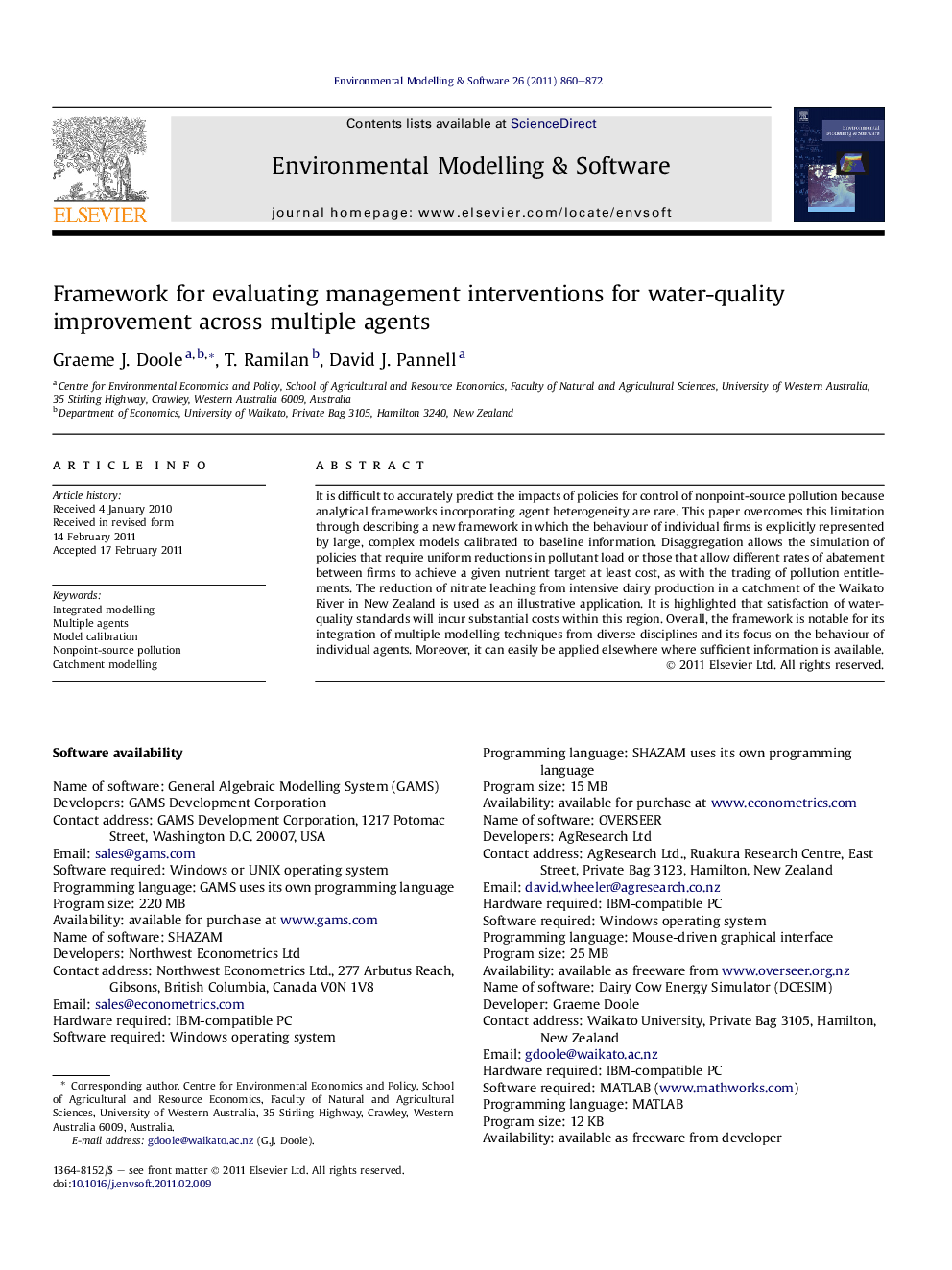| Article ID | Journal | Published Year | Pages | File Type |
|---|---|---|---|---|
| 570245 | Environmental Modelling & Software | 2011 | 13 Pages |
It is difficult to accurately predict the impacts of policies for control of nonpoint-source pollution because analytical frameworks incorporating agent heterogeneity are rare. This paper overcomes this limitation through describing a new framework in which the behaviour of individual firms is explicitly represented by large, complex models calibrated to baseline information. Disaggregation allows the simulation of policies that require uniform reductions in pollutant load or those that allow different rates of abatement between firms to achieve a given nutrient target at least cost, as with the trading of pollution entitlements. The reduction of nitrate leaching from intensive dairy production in a catchment of the Waikato River in New Zealand is used as an illustrative application. It is highlighted that satisfaction of water-quality standards will incur substantial costs within this region. Overall, the framework is notable for its integration of multiple modelling techniques from diverse disciplines and its focus on the behaviour of individual agents. Moreover, it can easily be applied elsewhere where sufficient information is available.
